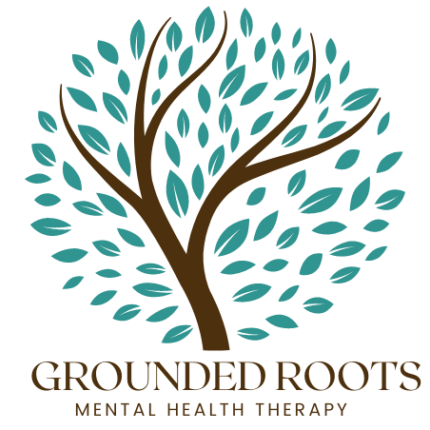Personality Disorder

Understanding Personality Disorders: Signs, Development, and Treatment
Personality disorders are a group of mental health conditions that involve enduring patterns of thoughts, emotions, and behaviors that deviate from cultural expectations. These patterns often affect relationships, self-perception, and how individuals interact with the world. Each personality disorder is unique, and understanding them with compassion and without judgment can lead to better awareness, support, and recovery.
1. Paranoid Personality Disorder (PPD)
•Signs and Symptoms:
•Distrust and suspicion of others without sufficient reason.
•Reluctance to confide in others for fear of betrayal.
•Reading hidden, threatening meanings into benign remarks or events.
•Development:
•Often linked to childhood experiences of betrayal or neglect.
•Treatment:
•Cognitive Behavioral Therapy (CBT) to challenge mistrustful thoughts.
•Building trust in a therapeutic relationship.
2. Schizoid Personality Disorder
•Signs and Symptoms:
•Preference for solitude and limited emotional expression.
•Indifference to praise or criticism.
•Few close relationships outside of immediate family.
•Development:
•May result from emotionally distant or neglectful caregivers.
•Treatment:
•Psychotherapy to build interpersonal skills.
•Encouragement of emotional awareness and expression.
3. Schizotypal Personality Disorder
•Signs and Symptoms:
•Odd beliefs or magical thinking (e.g., believing in telepathy).
•Social anxiety and discomfort in close relationships.
•Eccentric behavior and speech patterns.
•Development:
•Often influenced by genetics and environmental factors.
•Treatment:
•Therapy focusing on social skills and reducing isolation.
•Low-dose antipsychotic medications in severe cases.
4. Borderline Personality Disorder (BPD)
•Signs and Symptoms:
•Intense fear of abandonment and unstable relationships.
•Rapid mood swings and emotional instability.
•Impulsive behaviors, self-harm, or suicidal ideation.
•Development:
•Commonly linked to childhood trauma or invalidating environments.
•Treatment:
•Dialectical Behavior Therapy (DBT) to develop emotional regulation.
•Mindfulness techniques to manage impulsivity.
5. Narcissistic Personality Disorder (NPD)
•Signs and Symptoms:
•Grandiosity and an inflated sense of self-importance.
•Need for excessive admiration and difficulty empathizing with others.
•Sensitivity to criticism, often reacting with anger or shame.
•Development:
•Often arises from childhood experiences of excessive criticism or admiration.
•Treatment:
•Therapy focused on developing empathy and addressing underlying self-esteem issues.
•Psychodynamic approaches to explore early experiences.
6. Antisocial Personality Disorder (ASPD)
•Signs and Symptoms:
•Disregard for others’ rights, impulsivity, and deceitfulness.
•Lack of remorse for harmful actions.
•Aggressive or criminal behavior.
•Development:
•Strongly linked to childhood trauma and environmental factors.
•Treatment:
•Long-term therapy focusing on impulse control and empathy.
•Community-based support programs.
7. Histrionic Personality Disorder
•Signs and Symptoms:
•Excessive attention-seeking behavior.
•Dramatic and theatrical expressions of emotion.
•Discomfort when not the center of attention.
•Development:
•May be influenced by parental reinforcement of attention-seeking behaviors.
•Treatment:
•Therapy to explore self-esteem and reduce dependency on external validation.
8. Avoidant Personality Disorder
•Signs and Symptoms:
•Extreme sensitivity to criticism and fear of rejection.
•Avoidance of social interactions despite a desire for connection.
•Feelings of inadequacy and low self-esteem.
•Development:
•Often linked to childhood experiences of rejection or ridicule.
•Treatment:
•CBT to challenge negative beliefs about self-worth.
•Gradual exposure to social situations.
9. Dependent Personality Disorder
•Signs and Symptoms:
•Difficulty making decisions without excessive reassurance.
•Fear of being alone or abandoned.
•Willingness to tolerate mistreatment to maintain relationships.
•Development:
•Frequently associated with overprotective or authoritarian parenting.
•Treatment:
•Therapy to build independence and self-confidence.
•Assertiveness training to set boundaries.
10. Obsessive-Compulsive Personality Disorder (OCPD)
•Signs and Symptoms:
•Preoccupation with orderliness, perfectionism, and control.
•Inflexibility about rules and routines.
•Difficulty delegating tasks or accepting imperfection.
•Development:
•May stem from early experiences emphasizing achievement and control.
•Treatment:
•CBT to challenge rigid thought patterns.
•Relaxation techniques to reduce stress.
Compassionate Treatment for All Personality Disorders
Regardless of the specific disorder, treatment involves:
1.Therapy:
•Focused on understanding patterns and building healthier behaviors.
2.Supportive Relationships:
•Encouraging trust, empathy, and open communication.
3.Self-Care Practices:
•Incorporating mindfulness, exercise, and stress management.
By approaching personality disorders with empathy and understanding, individuals can find healing and foster meaningful relationships.

